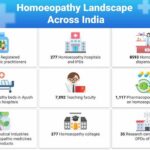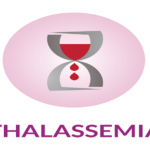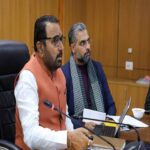Speaking at the function, Smt Anupriya Patel stated that it is important to understand that in India it is mainly the living donors who are donating organs and only about 23% of the organ transplant is being done with organs obtained from the cadavers. “There is a need to promote cadaver or deceased organ donation rather than relying on living donors in order to avoid the risk of commercial trading of organs and also to avoid the inherent risk to the health of the living donor,” Smt Anupriya Patel added.
Addressing the participants, Smt Anupriya Patel further stated that it’s high time we understand, and also spread awareness in the community at large, that a living person can save the life of only one person but a deceased or cadaver organ donor can save up to 9 lives by donating vital organs. “Apart from promoting organ donation it is also important to improve the infrastructure and capacity of government hospitals to undertake transplantation so that the poor and needy could benefit,” she said.
Congratulating Safdarjung Hospital on this initiative, Smt Anupriya Patel stated that deriving inspiration from this more and more government hospitals should come forward and take up organ transplantation task to benefit the poor and needy patients of India.
National level Tissue Bank will fulfill the demands of tissue transplantation including activities for procurement, storage and fulfill distribution of biomaterials. The centre will take care of the tissue allografts that includes bone and bone products e.g. deep frozen bone allograft, freeze dried bone allograft, dowel allograft, AAA Bone, duramater, facialata, fresh frozen human amniotic membrane, high temperature treated board cadaveric joints like knees, hips and shoulders, cadaveric cranium bone graft, loose bone fragment, different types of bovine allograft, used in orthodontics, skin graft, cornea, heart valves and vessels. The Centre will also add other tissues gradually.
The activities of the Centre will include coordination for tissue procurement and distribution, donor tissue screening, removal of tissues and storage, preservations of tissue, laboratory screening of tissues, tissue tracking, sterilization, records maintenance, data protection and confidentiality, quality management in tissues, patient information on tissues, development of guidelines, protocols and standard operating procedures, trainings and assisting as per requirement in registration of other tissue banks.
Also present at the event were Dr. Jagdish Prasad, Director General Health Services, Dr Sudhir Kumar, Joint Secretary, MoHFW along with the other senior officers of the Health Ministry and NOTTO.







